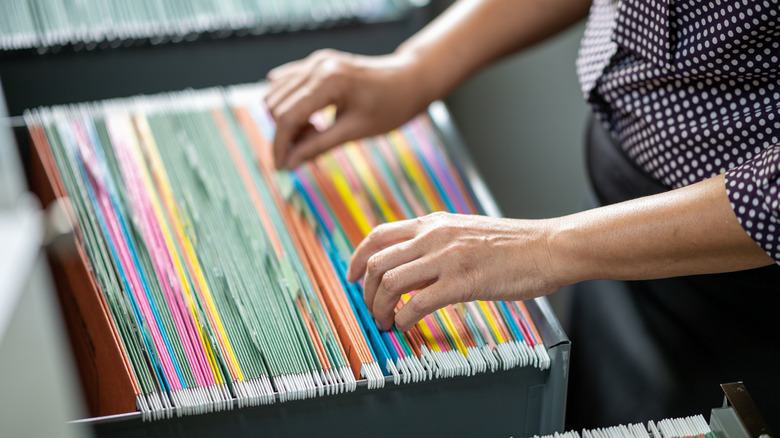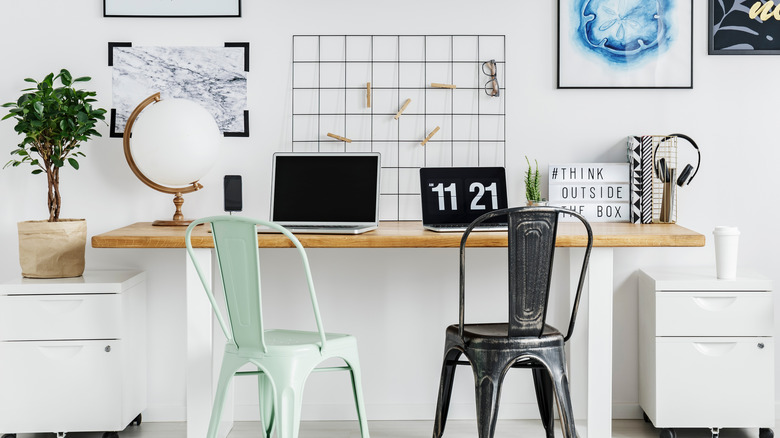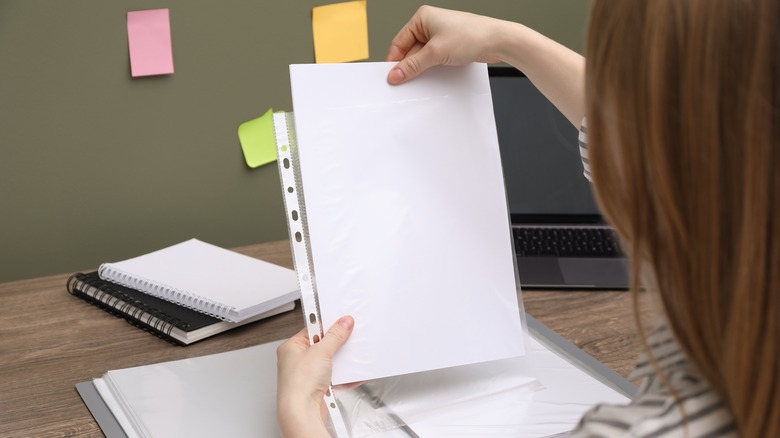Filing Cabinets Are The Unexpected Breeding Ground For Mold - Here's How To Avoid It
As a homeowner, you do your best to care for your home and prevent anything from happening. But one thing that's more complex to prevent is mold. Even if you keep your house in tip-top shape, there are some areas where mold grows unknowingly, such as filing cabinets, as leaving damp boxes full of papers exposes them to growing mold spores. But ensuring your filing cabinets are in a dry area will help to prevent mold.
Filing cabinets have always been an easy way to keep every vital piece of paper in one place, but if they're stored in a humid environment, mold can damage your important papers and documents. A major downside of mold is that it's irreversible – it's hard to fully get rid of mold without getting rid of everything. Mold grows and spreads fast, so taking the proper precautions to prevent it from forming in your filing cabinet in the first place is vital.
Place the filing cabinet in a dry room
For those who don't have a home office where they can store their filing cabinets, many people will instead resort to leaving essential papers in a filing cabinet in the garage, attic, or basement, which aren't the ideal spots to keep papers. These rooms are prone to receiving unexpected water damage if your house leaks, floods, or has high humidity. And when exposed to moisture, mold spores grow on your important papers thanks to its wood pulp — the soft, wet material used to make it. When wet paper sits in a box for weeks, mold spores start growing and feeding off the paper, producing and spreading even more mold.
If there isn't another space outside of your attic, garage or basement to store your filing cabinet, occasionally use a dehumidifier in these rooms to minimize the water molecules in the air. Keep papers in metal cabinets rather than thin boxes, and remember to close the cabinet after adding new files.
Use sheet protectors for storage
While storing your filing cabinet in a cool, dry place is the best step you can take for mold prevention, there are extra things you can do to ensure your filing cabinet and the papers inside it are always in good condition. For example, if you can, keep your filing cabinet off the floor. In the event of flooding or a leak, water will puddle first on the floor, so your files will be the first to get wet should they be sitting directly on the ground.
Furthermore, file your papers in binders with plastic sheet protectors to keep them dry and easy to access. The binders can hold multiple documents and can be organized by type, which helps minimize the number of boxes you use. Meanwhile, keeping your important papers in sheet protectors provides another layer of protection should your home flood or experience water damage.


